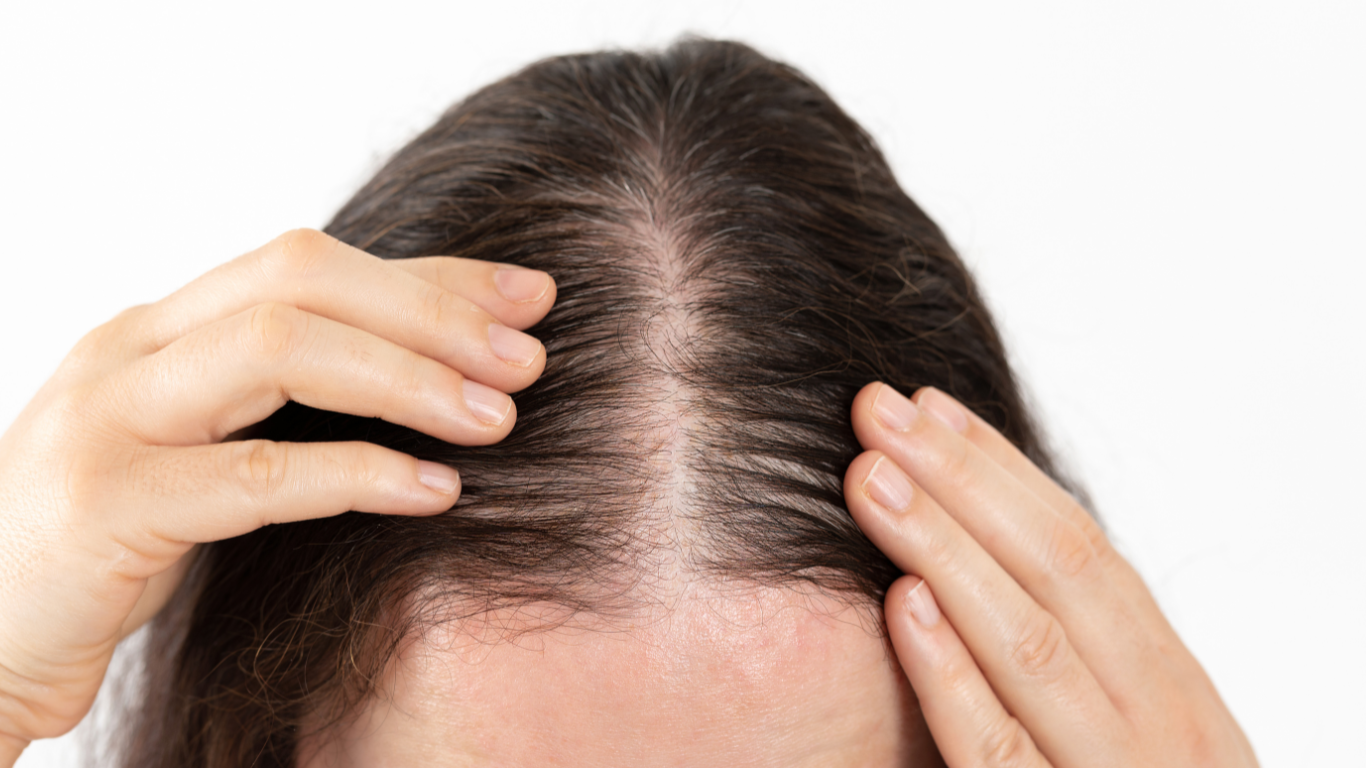How do you know if your hair loss is temporary or permanent?
The truth is, not all hair loss is the same. Some types are only temporary, while others can lead to permanent follicular damage meaning the hair won’t grow back if it’s not promptly treated.
If you’re noticing more hair in the shower, a widening part, or a more visible scalp, it’s natural to worry. These changes might be part of a temporary phase, or they could signal the start of permanent hair loss.
Understanding the signs and common causes of hair loss can help you decide when treatment is needed, especially if your hair thinning isn’t improving.
What is the hair growth cycle?
It’s important to understand the hair growth cycle because it explains why your hair changes over time and why some hair loss may be temporary while other types can be permanent. Different hair loss conditions affect different phases of the cycle. Every strand of hair on your scalp follows a natural growth pattern made up of three key phases:
Anagen – The active growth phase, where your hair is steadily growing.
Catagen – The transitional phase, when hair growth slows down and the follicle starts to shrink.
Telogen – The resting and shedding phase, when hair pauses before naturally shedding to allow new hair to grow.
What causes temporary hair loss?
It’s normal to lose between 50 to 100 hairs each day as part of your natural hair growth cycle. However, when a larger number of hairs enter the resting or shedding phase at once, you may notice more hair fall. This sudden increase in shedding is known as telogen effluvium which is a temporary form of hair loss.
Telogen effluvium is often triggered by factors, such as physical or emotional stress, illness, surgery, hormonal changes, or nutritional deficiencies. Once the underlying trigger is managed, most people experience hair regrowth within a few months.
Temporary hair loss can also occur if the anagen growth phase shortens, causing hair to become thinner and finer. This happens in androgenetic alopecia, also known as male or female pattern baldness, which starts slowly but can be managed with early treatment.
What stops new hair from growing back?
Permanent hair loss occurs when hair follicles are damaged or destroyed and can no longer produce new hair. This damage often involves scar tissue replacing healthy follicles, as seen in conditions like scarring alopecia or advanced androgenetic alopecia.
This type of hair loss usually doesn’t reverse on its own, making early diagnosis and treatment essential to slow progression and open up options like medical therapies or hair restoration procedures.
A healthy scalp = healthy hair growth
The scalp provides the essential foundation for healthy hair growth. When the scalp is healthy, blood flow and nutrients can easily reach the hair follicles, supporting consistent hair growth and natural hair renewal. If your scalp is inflamed, clogged with excess sebum, or affected by product buildup, it can weaken the follicle environment, leading to thinning or increased hair fall.
If you’re experiencing any of the following, it may be time to speak with a dermatologist:
Widening part or receding hairline
Visible scalp in previously dense areas
Hair not growing back after shedding
Tingling, burning, or scalp inflammation
Smooth, shiny patches with no visible follicles
When should you see a dermatologist for hair loss?
Hair loss can be temporary, treatable, or permanent, depending on its cause and when you seek help. You should see a dermatologist as soon as you notice unusual or persistent hair thinning or shedding. Leaving hair loss untreated for too long can lead to permanent damage to hair follicles, making regrowth much harder or even impossible.
If you're unsure what’s causing your shedding, don’t wait. Consulting with a dermatologist can help preserve the hair you have, and potentially regrow what’s been lost. Early treatment increases the chances of slowing or stopping hair loss and improves the effectiveness of therapies.
Our dermatologist, Dr Bevin Bhoyrul, has a special interest and extensive experience in treating hair loss. Book a consultation today to develop a personalised plan to restore your hair.




